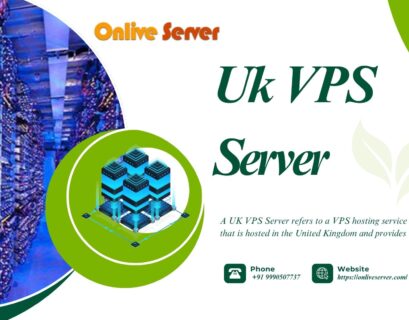Indeed, in current days a web site is nothing without good performance. Site speed is an important factor in the performance of a site in as much as slow loading times contribute to high bounce rates and low conversion rates. Through research, it is evident that increased website performance can be achieved by implementing a Virtual Private Server (VPS). It gives you a dedicated server facility at an affordable price as compared to dedicated server hosting which makes it all the more appealing for the user or business.
Do you have the problem of slow loading of web pages of your site? This might mean that the only solution is a Virtual Private Server (VPS). This guide continues outlining the various benefits that users of a Cheap VPS Server get as compared to the users of a shared hosting service. Find out what measures it is possible to take to select the right VPS provider, configure server parameters effectively, and increase webpage loading speed and overall performance. Know why operating an online business on a dependable and Cheap VPS is a great idea.
Choosing the Right VPS Server
Processor: Opt for a processor with multiple cores and a high clock speed to handle demanding tasks and ensure optimal performance.
RAM: Consider the amount of RAM needed for your website’s applications and traffic. More RAM generally translates to better performance.
Storage: Evaluate your storage requirements based on website size, database size, and multimedia files. Choose a storage plan that accommodates your needs.
Bandwidth: Ensure the VPS provider offers sufficient bandwidth to handle your website’s traffic and avoid slowdowns during peak periods.
Location: Select a server location geographically close to your target audience to minimize latency and improve loading times.
Scalability: Choose a provider that can easily scale your VPS resources up or down as your website’s needs change.
Control Panel: Consider the ease of use and features of the control panel provided by the VPS provider. A user-friendly control panel can simplify server management.
Key Performance Advantages of a Cheap VPS Server
Dedicated Resources: Unlike shared hosting, a VPS provides dedicated resources such as CPU, RAM, and storage. This means your website isn’t competing with other websites for these resources, leading to improved performance.
Root Access: With a VPS, you have root access, allowing you to customize your server environment to meet your specific needs. This can include installing custom software, optimizing configurations, and fine-tuning performance.
Scalability: VPS server is highly scalable, meaning you can easily increase or decrease your resources as your website’s traffic and demands change. This ensures your website always has the capacity it needs.
Improved Security: A VPS offers a more secure environment than shared hosting, as you have your own isolated space. This reduces the risk of security breaches and protects your website’s data.
Faster Loading Times: Dedicated resources and the ability to optimize your server environment contribute to faster website loading times, which is crucial for improving user experience and search engine rankings.
Better Control: A VPS gives you greater control over your server environment, allowing you to manage updates, install security patches, and monitor performance more effectively.
Cost-Effective: While VPS servers aren’t as cheap as shared hosting, they offer a significant performance boost at a fraction of the cost of a dedicated server. This makes them a cost-effective option for businesses and individuals who need more control and performance than shared hosting provides.
Additional Tips for Maximizing Your VPS Performance
Regular Monitoring: Use performance monitoring tools to track your VPS’s resource usage, identify bottlenecks, and address issues promptly.
Regular Updates: Keep your operating system, software, and applications up-to-date to ensure optimal performance and security.
Optimize Database Queries: Improve database performance by optimizing queries, indexing tables, and using caching mechanisms.
Content Delivery Network (CDN): Utilize a CDN to cache static content closer to your visitors, reducing latency and improving loading times.
Minimize HTTP Requests: Combine CSS and JavaScript files, enable browser caching, and optimize images to reduce the number of HTTP requests your website makes.
Choose a Reliable Provider: Select a VPS provider with a proven track record, reliable infrastructure, and excellent customer support.
Optimizing VPS Server Performance
Regular Monitoring: Use performance monitoring tools to track resource usage, identify bottlenecks, and address issues promptly.
Regular Updates: Keep your Operating System, software, and applications up-to-date to ensure optimal performance and security.
Database Optimization: Optimize database queries, and index tables, and use caching mechanisms to improve database performance.
Content Delivery Network (CDN): Utilize a CDN to cache static content closer to your visitors, reducing latency and improving loading times.
Minimize HTTP Requests: Combine CSS and JavaScript files, enable browser caching, and optimize images to reduce the number of HTTP requests.
Choose a Reliable Provider: Select a VPS provider with a proven track record, reliable infrastructure, and excellent customer support.
Finding a Reliable, Cheap VPS Provider
When searching for a VPS provider, prioritize reliability and affordability. Research providers with positive reviews and a proven track record. Compare pricing plans, features, and customer support services. Consider factors like server location, bandwidth, and scalability to ensure the provider meets your website’s specific needs. By carefully evaluating these aspects, you can find a VPS provider that offers optimal performance at a reasonable cost.
Conclusion
In today’s competitive digital landscape, a high-performing website is essential for success. A reliable, VPS server can provide the necessary resources and flexibility to optimize your website’s performance. By following the guidelines outlined in this article, you can choose the right VPS provider, optimize your server settings, and achieve significant improvements in website speed, user experience, and overall online success.














